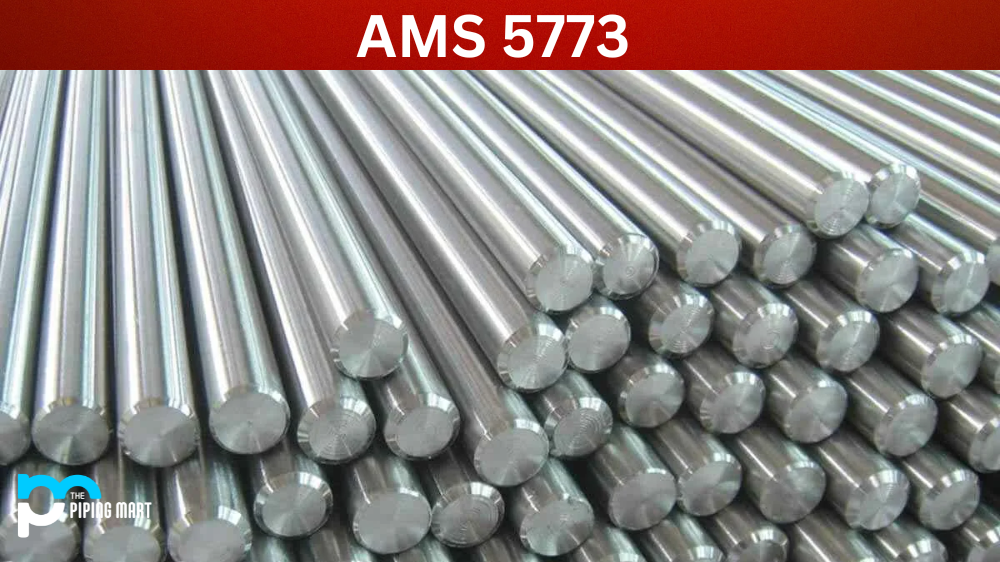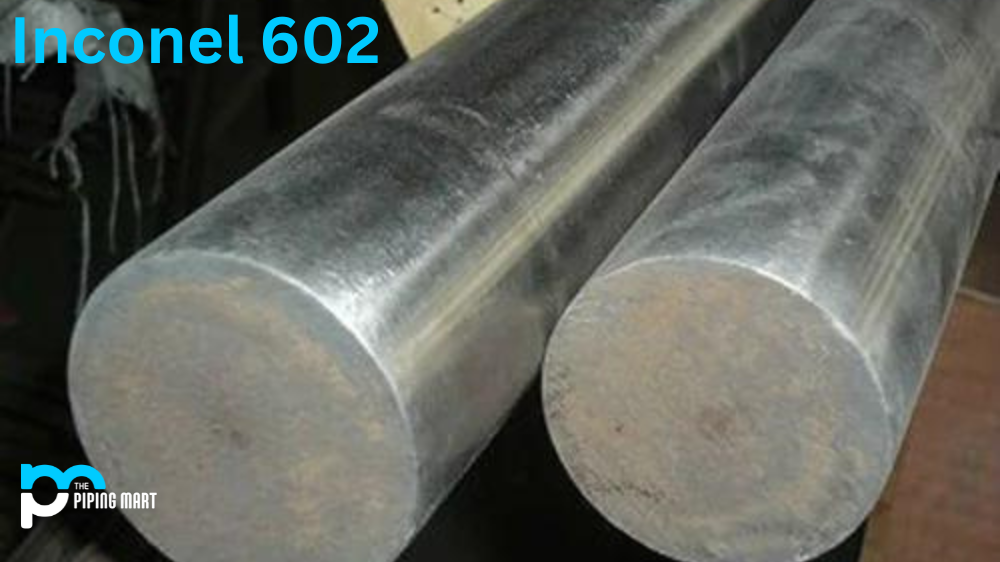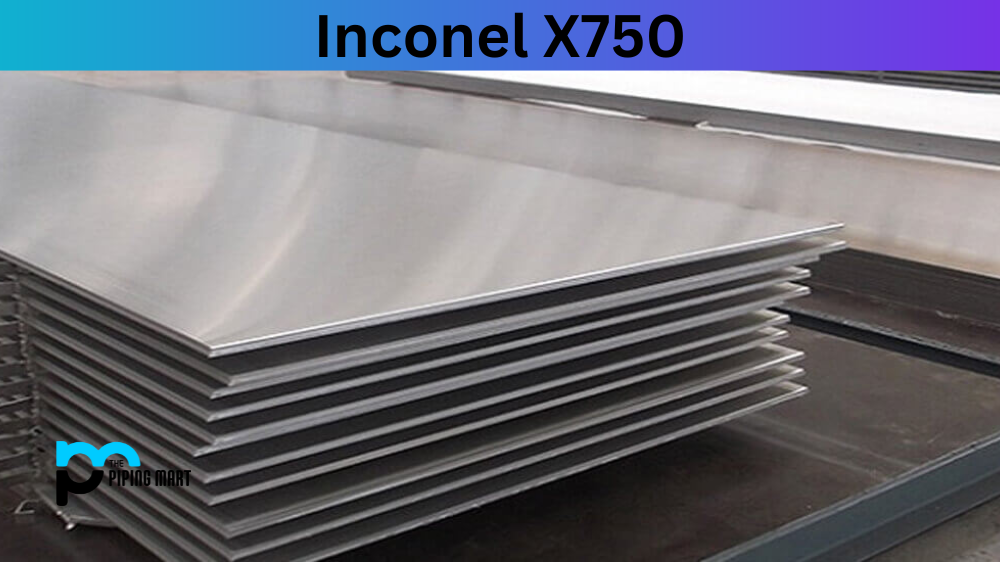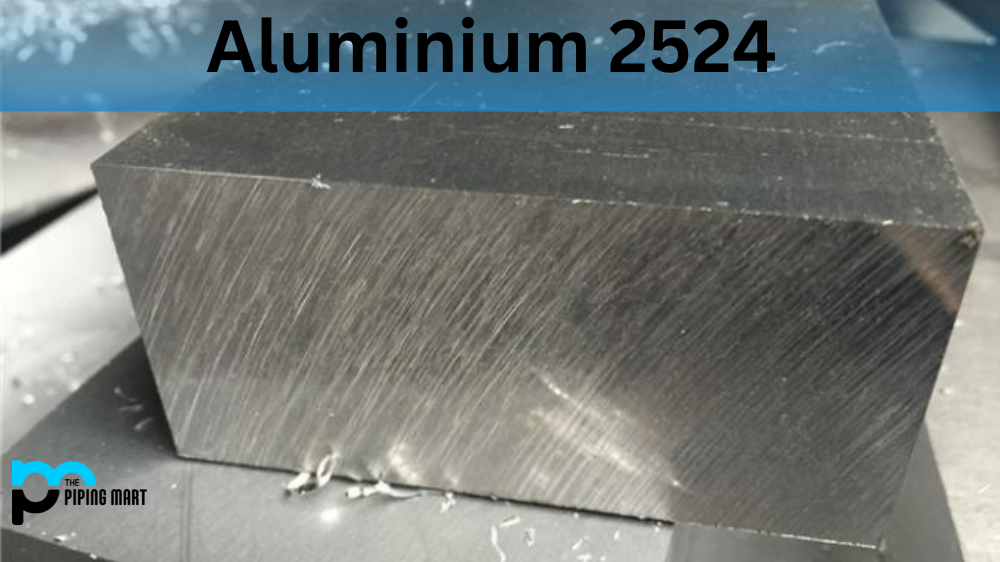AMS 5773 is a precipitation-hardening stainless steel alloy widely used in various industries, including aerospace, marine, and defence. With its exceptional strength, corrosion resistance, and excellent heat resistance, AMS 5773 is ideal for manufacturing critical components and structures exposed to extreme environments. This blog post will closely examine AMS 5773 and explore its essential features, properties, and applications.
What is AMS 5773?
AMS 5773 (also known as 450 Stainless Steel) is a special type of steel engineered to provide superior strength and durability in extreme conditions. This high-performance steel is often used in industries that require materials that can withstand harsh environments, such as aviation, marine, and oil and gas. Unlike traditional steels, AMS5773 is designed to resist corrosion and wear, making it an ideal choice for critical applications where failure is not an option. The unique properties of this steel make it an indispensable material for many industries, and its versatility and reliability have made it a favourite of engineers and designers worldwide.
AMS 5773 Composition
AMS 5773 bar is a martensitic precipitation-hardening stainless steel alloy that contains high percentages of chromium, nickel, and molybdenum. It also includes copper and niobium as minor alloying elements. The high nickel content in AMS5773 helps improve the alloy’s toughness and strength, while the copper and niobium contribute to its high resistance to corrosion and oxidation. The precise composition of AMS 5773 varies depending on the manufacturing process and supplier but typically ranges from 14.5% to 16% chromium, 4.5% to 6% nickel, 2.5% to 3.5% molybdenum, 1% to 2% copper, and 0.4% to 0.6% niobium.
| Element | Content (%) |
|---|---|
| Iron, Fe | 74.3 |
| Chromium, Cr | 15 |
| Nickel, Ni | 6 |
| Copper, Cu | 1.5 |
| Silicon, Si | 1.0 |
| Manganese, Mn | 1.0 |
| Molybdenum, Mo | 0.75 |
| Niobium, Nb (Columbium, Cb) | 0.40 |
| Carbon, C | 0.050 |
| Phosphorous, P | 0.030 |
| Sulfur, S | 0.030 |
AMS 5773 Physical Properties
The physical properties of AMS 5773 sheet depend on the specific composition and heat treatment procedures. Generally, the alloy has a density of around 7.76 g/cm3 and a melting point of approximately 1395°C (2533°F). AMS 5773 exhibits excellent thermal stability and can withstand temperatures up to 595°C (1100°F) without significantly degrading its mechanical properties.
| Properties | Metric | Imperial |
|---|---|---|
| Density | 7.80 cm³ | 0.282 lb/in³ |
AMS 5773 Mechanical Properties
AMS 5773 plate offers a unique combination of high strength, toughness, and flexibility, making it an ideal material for producing parts that withstand high stress, wear, and fatigue. The mechanical properties of AMS 5773 can be adjusted through various heat treatment processes, such as solution annealing, ageing, and precipitation hardening. Generally, AMS 5773 has a tensile strength of 1900 MPa to 2100 MPa, yield stress of 1700 MPa to 1900 MPa, and elongation of 6% to 12%. The alloy also has high pitting and crevice corrosion resistance and excellent fatigue properties.
| Properties | Metric | Imperial |
|---|---|---|
| Tensile strength | 986 MPa | 143000 psi |
| Yield strength (@ strain 0.200%) | 814 MPa | 118000 psi |
| Bulk modulus (typical for steel) | 166 GPa | 24100 ksi |
| Shear modulus (typical for steel) | 83.9 GPa | 12200 ksi |
| Charpy impact | 125 – 141 J | 92.2 – 104 ft-lb |
| Elongation at break (gage length is 4 times specimen diameter) | 13.30% | 13.30% |
| Hardness, Brinell (converted from Rockwell C hardness) | 278 | 278 |
| Hardness, Knoop (converted from Rockwell C hardness) | 296 | 296 |
| Hardness, Rockwell C | 28 | 28 |
| Hardness, Vickers (converted from Rockwell C hardness) | 287 | 287 |
AMS 5773 Thermal Properties
| Properties | Metric | Imperial |
|---|---|---|
| Thermal expansion co-efficient ( @ 20-100°C/68-212°F) | 10.1 µm/m°C | 5.61 µin/in°F |
| Thermal conductivity (typical value for stainless steel) | 20.7 W/mK | 144 BTU in/hr.ft².°F |
AMS 5773 Equivalent
- AMS 5763
- AMS 5859
- AMS 5863
- ASTM A564 (XM-25)
- ASTM A693 (XM-25)
- ASTM A705 (XM-25)
AMS 5773 Uses
AMS 5773 tubing finds extensive use in demanding industries that require high-performance materials that can withstand harsh environments, high pressure, and extreme temperature conditions. Some common applications of AMS 5773 include aircraft engine components, landing gear assemblies, nuclear reactor components, pressure vessels, marine hardware, and valves. Due to its exceptional corrosion resistance, AMS 5773 is also used in the chemical and petrochemical industry to produce storage tanks, pipelines, and reactors.
AMS 5773 Hardness
The hardness of AMS 5773 depends on its composition and heat treatment. When in its solution annealed state, the alloy has a hardness of around 250 Hv. After precipitation hardening, AMS 5773 can have a hardness of up to 600 Hv, making it one of the hardest stainless steel alloys available.
AMS 5773 Heat Treatment
AMS 5773 sheet is readily heat-treatable, allowing its mechanical properties to be fine-tuned based on different requirements. The heat treatment process typically involves a solution annealing treatment, followed by ageing in a range of 480°C to 565°C (896°F to 1049°F), and a final precipitation hardening treatment. The specific heat treatment processes and regimes will depend on the application and performance requirements.
Conclusion:
In conclusion, AMS 5773 material is a high-performance precipitation-hardening stainless steel alloy with exceptional strength, toughness, and corrosion resistance. Its unique properties make it a go-to material for manufacturing critical components and structures in several industries, including aerospace and marine. The specific composition, physical and mechanical properties, hardness, and heat-treatment protocols of AMS 5773 make it a versatile and reliable material capable of withstanding harsh environments and high demands.

A passionate metal industry expert and blogger. With over 5 years of experience in the field, Palak brings a wealth of knowledge and insight to her writing. Whether discussing the latest trends in the metal industry or sharing tips, she is dedicated to helping others succeed in the metal industry.




